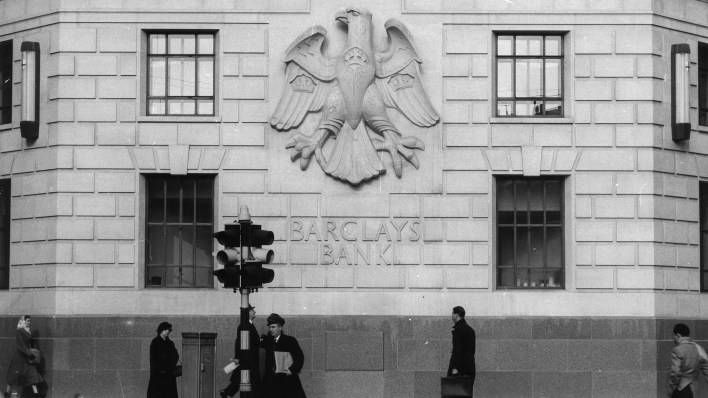
Barclays Group Archives
Barclays Group Archives are home to the records of Barclays PLC and its predecessors, dating from 1567 to the present day
Business historian Professor Leslie Hannah talks about Barclays' long history and its role in society during this time.
Many small country banks began as a sideline to a family firm’s original trade. In Cornwall, many of the banks founded had links to the mining industry.
The East Cornwall Bank’s founders were Thomas Robins a Solicitor from Liskeard, Richard Foster a Merchant from Lostwithiel, Edward Coode a Solicitor from St Austell and Thomas and William Bolitho, Merchants from Penzance whose family would prove a significant force in the development of banking in Cornwall. Significantly, banking was not the main business undertaken by the partners. The Bolithos were are the heart of the local economy as their principal business was tin smelting. They were also suppliers of coal and timber which were essential supplies for Cornish miners. Alongside the Bank’s provision of credit for the purchase of these commodities, their investment in the development of the tin and lead mining industry put the bank right at the heart of the East Cornish economy.
Thomas Robins Bolitho
Like all country banks of the time, these five men invested their own money into the business and bore the sole liability for the success or failure of the enterprise. Banking could be a surprisingly risky business. In 1825, 63 country banks failed during a depression.
The East Cornwall Bank developed over time seeing steady growth as well as inevitable changes in management. Shortly after the Liskeard branch was established, an agency was also established at Lostwithiel under the guidance of local merchant Richard Foster, one of the five initial partners.
A further branch was opened in Bodmin in 1808, and the Liskeard branch was placed under the control of a ‘managing partner’ William Westlake who remained in the post until his retirement in 1826.
Several branches or agencies were opened over the course of the next sixty years. This began with Launceston in 1831 and continued with branches in St Austell in 1834 and Stratton in 1849. Agencies in Padstow and Camelford and a branch in Wadebridge followed in 1864 and finally an agency was opened in Holsworthy in 1869.
The partners, invariably family members, with the Bolithos, Coodes and Fosters very much in the driving seat, setting the policies and strategies for the bank’s continuing success.
During this period, overall management of the Bank was undertaken by the partners. The Bolithos, Coodes and Fosters all played a very active role, with sons, younger brothers or nephews inheriting partnership positions and enabling the families to retain control. The partners shaped the policies and strategies that determined the Bank’s continued success, chose where to open new branches and who to employ there, and decided on large-scale loans for industries which had the potential to affect the economy of whole towns.
Responsible for the day-to-day running of the branches and agencies were men appointed by the partners. Agents usually represented the Bank in towns without a full branch presence, and were allowed to carry out straightforward transactions. Managing partners, however, usually had full control of a branch, and had a reasonable degree of freedom to vet potential customers and to make smaller-scale, temporary loan arrangements.
Between 1889 and 1896, the East Cornwall Bank merged with a number of other Cornish banks. In 1905, the new enlarged bank amalgamated with Barclay and Company. As elsewhere in England, when Barclays took over, the existing directors or partners of the old banks were retained as local Barclays directors to ensure continuity in business and retain goodwill.
The Bolitho family remained influential in the Bank and in Cornwall long after the amalgamation, serving both as local directors and members of the main Barclays board. Thomas Robins Bolitho, originally appointed as a director of Robins, Foster, Coode and Bolitho Co (East Cornwall) in 1887, finally retired as a Local Director of Barclays and Company in 1918. His descendent Simon Bolitho remained as a Local Director until he retired in 1986.
